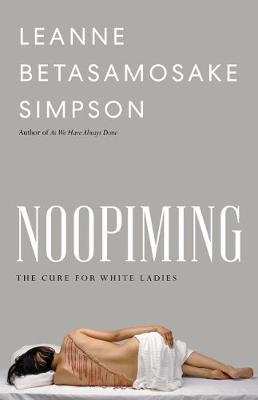Indigenous Americas
2 total works
Winner: Native American and Indigenous Studies Association's Best Subsequent Book 2017
Honorable Mention: Labriola Center American Indian National Book Award 2017
Across North America, Indigenous acts of resistance have in recent years opposed the removal of federal protections for forests and waterways in Indigenous lands, halted the expansion of tar sands extraction and the pipeline construction at Standing Rock, and demanded justice for murdered and missing Indigenous women. In As We Have Always Done, Leanne Betasamosake Simpson locates Indigenous political resurgence as a practice rooted in uniquely Indigenous theorizing, writing, organizing, and thinking.
Indigenous resistance is a radical rejection of contemporary colonialism focused around the refusal of the dispossession of both Indigenous bodies and land. Simpson makes clear that its goal can no longer be cultural resurgence as a mechanism for inclusion in a multicultural mosaic. Instead, she calls for unapologetic, place-based Indigenous alternatives to the destructive logics of the settler colonial state, including heteropatriarchy, white supremacy, and capitalist exploitation.
The new novel from the author of As We Have Always Done, a poetic world-building journey into the power of Anishinaabe life and traditions amid colonialism
In fierce prose and poetic fragments, Leanne Betasamosake Simpson's Noopiming braids together humor, piercing detail, and a deep, abiding commitment to Anishinaabe life to tell stories of resistance, love, and joy.
Mashkawaji (they/them) lies frozen in the ice, remembering the sharpness of unmuted feeling from long ago, finding freedom and solace in isolated suspension. They introduce the seven characters: Akiwenzii, the old man who represents the narrator's will; Ninaatig, the maple tree who represents their lungs; Mindimooyenh, the old woman, their conscience; Sabe, a gentle giant, their marrow; Adik, the caribou, their nervous system; and Asin and Lucy, the humans who represent their eyes, ears, and brain.
Simpson's book As We Have Always Done argued for the central place of storytelling in imagining radical futures. Noopiming (Anishinaabemowin for "in the bush") enacts these ideas. The novel's characters emerge from deep within Abinhinaabeg thought to commune beyond an unnatural urban-settler world littered with SpongeBob Band-Aids, Ziploc baggies, and Fjallraven Kanken backpacks. A bold literary act of decolonization and resistance, Noopiming offers a breaking open of the self to a world alive with people, animals, ancestors, and spirits-and the daily work of healing.

